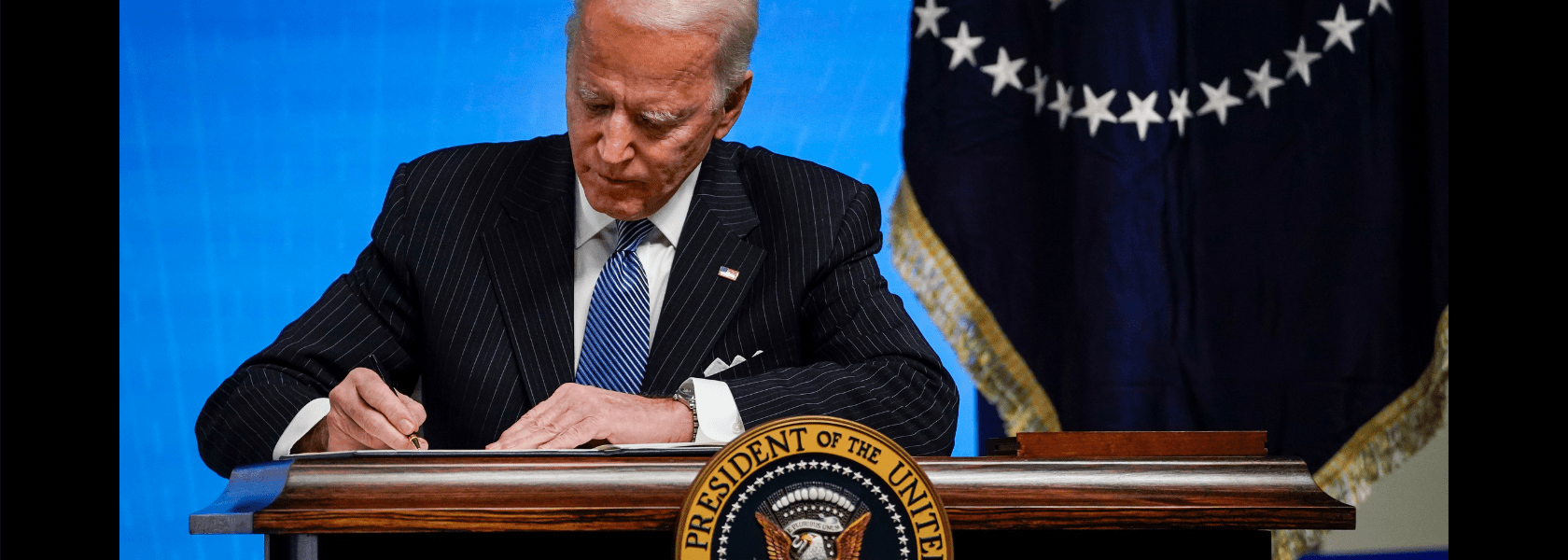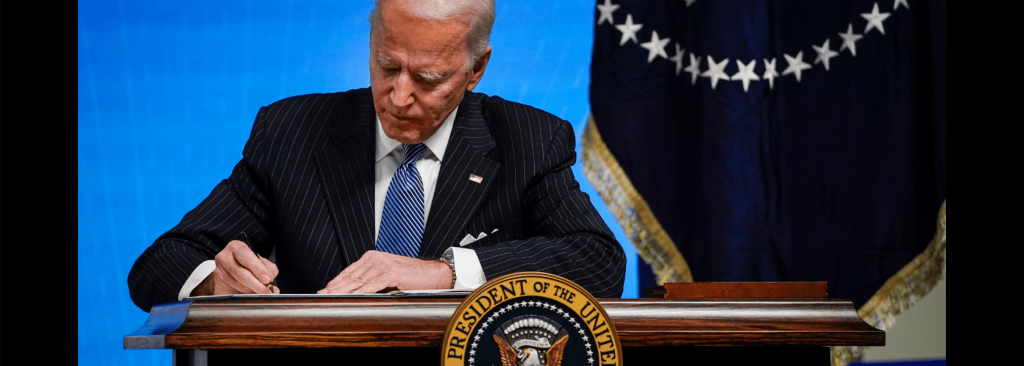

![]()
Dear Mr. President,
The International Federation for Human Rights (FIDH), and the undersigned 56 member organisations from all regions of the world, are all deeply committed to the realization of fundamental human rights for all. To ensure respect for human rights, we have been strong proponents of accountability for the most serious international crimes and advocates for victims of such crimes in obtaining truth, justice and reparations. For decades, we have supported the establishment of and facilitated access to independent accountability mechanisms, including the International Criminal Court (ICC), working to actualize the often-invoked but too rarely realized message that no one is above the law.
Today, we call on your administration to demonstrate your commitment to human rights and alignment with the international legal order by fully rescinding, with immediate effect, your predecessor’s Executive Order 13928 “Blocking Property of Certain Persons Associated with the International Criminal Court,” which targets international justice efforts before the ICC directly, and further threatens international efforts towards accountability for the most serious crimes of concern to the international community as a whole. The Executive Order (EO), adopted on June 11, 2020, which authorized sanctions against certain persons engaged in activities before an independent judicial body – the ICC – as well as civil and criminal penalties against those who provide support to designated persons, is a direct attack against the rule of law. To allow EO 13928 to remain in effect will, we submit, be a continuing stain on the United States and call into question its stated commitment to human rights, the rule of law and the international legal order.
The ICC continues to anchor the fight against impunity at the international level, and is a key agent for holding those alleged to bear the greatest responsibility for core international crimes to account before impartial, independent justice and with fair trial guarantees. Since its inception, our Federation and a great number of its member organizations have turned to the ICC as an accountability mechanism of last resort, and brought to it the voices of thousands of victims seeking redress. After losing hard-fought battles for justice before unwilling or unable domestic jurisdictions, victims have been able to turn to the ICC as a final avenue for justice. The Court – empowered and legitimized by its 123 States Parties – has provided the possibility of justice in the face of dictatorships, situations of entrenched impunity, ongoing conflicts and crises, and against political dominance.
The Trump administration’s attack against the ICC, its work, its personnel and civil society that supports its mission is one of the many examples of its disregard for multilateralism and its international obligations to protect and implement core human rights, including equal access to justice, redress and reparation for victims of the most serious crimes. The Trump administration’s aggressive campaign against the ICC intensified over the past year following developments at the Court regarding the situations of Afghanistan and Palestine. This constitutes an unprecedented attack on the work of the ICC and more broadly on the fight against impunity, sending a signal that could embolden authoritarian regimes and other perpetrators of international crimes who seek to escape justice. We call upon you to reject this attack on the rule of law and the de facto system of selective justice it reflects.
Through the adoption of the June 11, 2020 Executive Order 13928, which sought to punish the ICC and obstruct its very functioning, and the subsequent September 2, 2020 designation for sanctions of ICC Prosecutor Fatou Bensouda and the head of the Court’s Jurisdiction, Complementarity, and Cooperation Division, Phakiso Mochochoko, the Trump administration significantly impeded the work of the Court and further prevented human rights defenders from carrying out their work. The sanctioning of key ICC actors and the threat of sanctions and criminal penalties against all those who “materially assist” or “support” them, has rendered any engagement with the ICC Office of the Prosecutor challenging if not impossible, thereby undermining its ability to investigate and prosecute those responsible for the most heinous crimes. This obstruction of justice by the Trump administration constitutes a frontal attack against the independence of judges, prosecutors, and lawyers, and must be reversed immediately.
While the ICC has room for improvement, the Court is a unique and critical institution with the potential to bring justice to thousands of victims who are unable to obtain genuine justice at the national level. We urge you and your administration to recognize the central role of the International Criminal Court in the global fight against impunity, rescind the unconstitutional June 2020 Executive Order against the ICC, and revoke the related sanctions. More broadly, we call upon your administration to adopt and implement a rights-based agenda at home and abroad.
• FIDH – International Federation for Human Rights (Global)
• Acción Ecológica (Ecuador)
• Albanian Human Rights Group AHRG (Albania)
• Al-Haq (Palestine)
• Al Mezan Center for Human Rights (Palestine)
• ALTSEAN-Burma (Burma)
• Armanshahr | OPEN ASIA (Afghanistan/ Iran)
• Association Marocaine des Droits Humains (Morocco)
• Association Rwandaise pour la Défense des Droits et de la Personne (Rwanda)
• Association Tunisienne des Femmes Démocrates (Tunisia)
• Bir Duino (Kyrgyzstan)
• CAJAR – Colectivo de Abogados José Alvear Restrepo (Colombia)
• CCR – Center for Constitutional Rights (United States of America)
• CDHES – Comisión de Derechos Humanos de El Salvador (El Salvador)
• CEDAL – Centro de Derechos y Desarrollo (Peru)
• CENIDH – Centro Nicaraguense de Derechos Humanos (Nicaragua)
• Center for Civil Liberties (Ukraine)
• Centro de Capacitación Social de Panamá (Panama)
• CHRI – Commonwealth Human Rights Initiative (India)
• Citizens’ Watch (Russia)
• Civic Committee for Human Rights (Croatia)
• Civil Society Institute CSI (Armenia)
• CJA – Center for Justice and Accountability (United States of America)
• COFADEH – Comité de Familiares de Detenidos-Desaparecidos en Honduras (Honduras)
• Comisión Mexicana de Defensa y Promoción de los Derechos Humanos (Mexico)
• Damascus Center for Human Rights Studies (Syria)
• DITSHWANELO – The Botswana Centre for Human Rights (Botswana)
• Finnish league for human rights (Finland)
• Human Rights Center (Georgia)
• Human Rights Center “Viasna” (Belarus)
• Human rights foundation (Turkey)
• IHD – Insan Haklari Dernegi / Ankara (Turkey)
• INREDH – Fundación Regional de Asesoría en Derechos Humanos (Ecuador)
• Internationale liga für menschenrechte (Germany)
• Justiça Global (Brazil)
• Kazakhstan International Bureau for Human Rights (Kazakhstan)
• Rule of Law International Legal Initiative (ILI Foundation) (Kazakhstan)
• Latvian human rights committee (Latvia)
• Lega italiana dirriti dell’Uoma (Italy)
• Legal and human rights centre (Tanzania)
• Legal Clinic Adilet (Kyrgyzstan)
• Liga voor de rechten van mens (Netherlands)
• Ligue des droits de l’homme (France)
• Ligue Djiboutienne des Droits Humains (Djibouti)
• LIMEDDH AC – Liga Mexicana por la Defensa de los Derechos Humanos (Mexico)
• Maldivian Democracy Network (Maldives)
• MIDH – Mouvement Ivoirien des droits humains (Ivory Coast)
• MNDH – Movimento Nacional de Direitos Humanos (Brazil)
• Mouvement Lao pour les droits de l’homme (Laos)
• Norwegian Helsinki Committee (Norway)
• Odhikar (Bangladesh)
• Organisation de défense des droits de l’homme et du citoyen de la Guinée (Guinea)
• Palestinian Centre for Human Rights (Palestine)
• PHROC – Palestinian Human Rights Organisations Council (Lebanon)
• Portuguese league for human rights – Civitas (Portugal)
• Promo Lex (Moldova)
• PROVEA – Programa Venezolano de Eduación – Acción en Derechos Humanos (Venezuela)
• RNDDH – Réseau national de défense des droits humains (Haiti)
Since 1922, FIDH has worked to defend and uphold all civil, political, economic, social and cultural rights. The Federation acts at national, regional and international levels in support of its member and partner organisations to address human rights abuses and consolidate democratic processes.